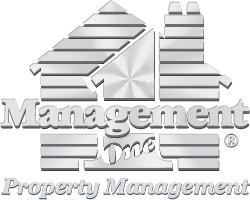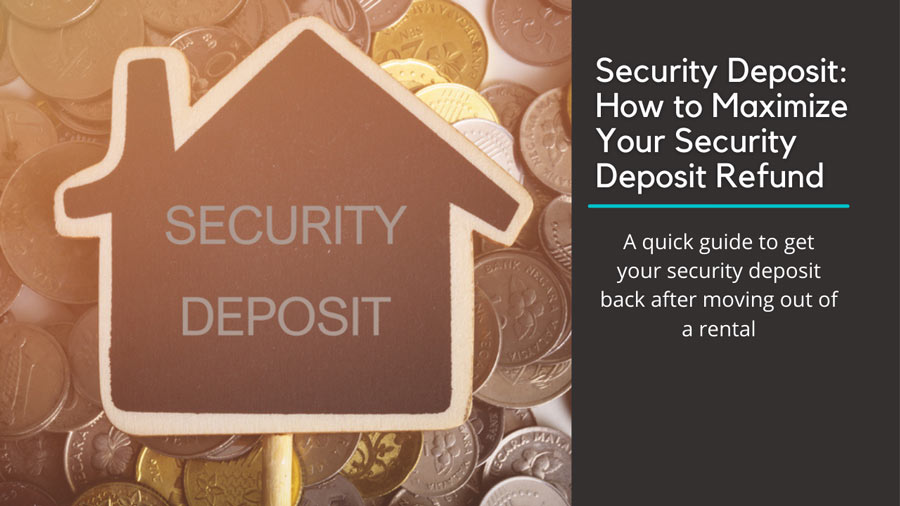A quick guide to get your security deposit back after moving out of a rental
If you have ever rented a place, a car, or tables for a party, you may have asked yourself, “how do I get my security deposit back?”
It is such a simple question with such a complex answer.
Why is the answer complex? Because there are a lot of variables; however, in this article, I am going to break it all down into parts and pieces to make it easier to understand.
First, what is a security deposit, and why does such a thing exist?
In the simplest of terms, a security deposit is monies held during your tenancy to
a) hopefully guard against potential damage to the rental unit, unintentional or otherwise, and
b) to pay for any damage to the property which occurs during your tenancy, unintentional or otherwise.
It is used as a hedge against the cost of rehabilitating the property and cleaning & repairing the property or unit once you move out. Simple.
But why does it exist?
Please allow me to pick you out of your shoes and plop you into an admittedly simplistic property owner’s shoes:
You have a bag of widgets, and Billy wants to borrow your widgets. There are 200 widgets in the bag, you know this because you counted them. Twice. You are a widget friend, a widget maven.
Billy brings back 199 widgets. Billy owes you a widget, or at least the cost of said widget, yeah?
Now Billy, being an host widget borrower (because that what a renter is, one who is borrowing someone else’s property, but at a cost), Billy ponies up.
But not Jake. Jake lost 75 widgets a month earlier and never paid you back. Jake is a cad. Don’t be like Jake.
Did you learn to never give Jake widgets ever again? Yes, but you also learned that going forward, widget borrowers would pay a security deposit, as Billy had, and you deducted the cost of the errant widget, and gave Billy the balance back.
It’s the same thing, but on a larger scale, with a property.
Where does my security deposit go once I have paid it?
It resides in a trust account until such time as you vacate the property, and after any valid deductions, it is returned to you before the end a specified time. This varies by locality, but most regions have it etched in stone the maximum time a property management company, owner, or landlord can hold your money once you vacate. Here in California, a security deposit refund or breakdown must be provided within 21 days for you vacating the home.
What can a security deposit be used for, and what can it not be used for?
A security deposit may not be used for items that fail or become damaged due to wear and tear in normal use. What that means is that in the course of life, any items can wear out simply from use; however, if not used in accordance with “normal” use, you can be charged for it.
Virtually everything has a finite lifespan, but misuse speeds that up quite a bit. A sliding glass door will wear its rollers, and at some point, it will need service, that is normal wear and tear. A slider that needs service weekly signals something else is going on. However, a slammed slider that cracks, intentionally slammed or not, is not wear and tear.
And by the way, some people do not understand that rollers will wear and need service, that it is simple to use wear and tear and not abuse.
In the case of abuse or misuse, the cost may be deducted from your security deposit. A hole punched in a wall, for example, a resident will be charged for that.
The poorly done patch that doesn’t match, nor look like the other walls? Someone will have to pay for it to be done right (sanded, textured, painted), and that person will be the responsible party, the resident.
That dishwasher that stopped working? Not the resident’s problem nor responsibility, unless it was misused. Remember that rim off your ‘67 Camaro you washed in there? That would be considered misuse.
The security deposit can be used for items which are not clean. My gauge of this is, “If I were moving into this property, how would I view this?”
I use this point of view both for first walks of a property, and final walks once a property is finished being rehabbed. If a property is move-in ready when someone moves out, great! But that seldom is the case.
Most renters have the best intentions
By and large I believe this is a true statement; however, they may not have the best eyes, and I mean that earnestly and sincerely. Let me explain.
Short eyes. A person moves in and they see what they wish to see. When they move out, they also see what they want to see; however, in the intervening time, be it a year or seven, they have become accustomed to seeing the surroundings, and with them in the surroundings.
You see, when you see the same thing, day after day, month after month, one simply blots pieces and parts out. It’s completely natural and normal to do.
What I recommend is to have a disinterested 3rd party, who is honest, tells it like it is, and isn’t afraid to do so, look your property over as if they were moving in right when you move out.
What will they see?
If they are honest, they will mention the dust on the ceiling fan blades, the light bulb that is out, the hand marks on the windows, etc. I know I don’t lay awake thinking about the dust on my blades, nor yours either, but if I move into a place with it, I guarantee you I will notice it.
Here’s how to get your security deposit refund:
At Management One we videotape tape the property and take photos. Not all property management companies have this practice. Therefore, we recommend that you take your own photos before move in. Photograph any stains on the carpet, or other damage you might find. Print our photos out and have the landlord sign them. They might forget about that gross stain on the carpet in two years from now, then try and take it out of your security deposit.
Clean. Everything.
Fix that drawer that the kiddo broke while trying to stand. The kiddo didn’t mean to break it, but that shouldn’t be the property owner’s problem.
Look Up! Most people miss or forget about light bulbs; they forget about bathroom exhaust fans; they forget about ceilings, cobwebs, things like that. they have gotten used to NOT looking at these things.
Look at the window runs and sills. People often clean the window glass when moving out, but almost always neglect the runs (the track sideways sliding windows fit into), and for good reason–they are hard to clean!
One of our cleaners told me he uses WD40, a thin towel, and a butter knife to clean these. Another told me they use a vacuum. One of them is putting me on, I think.
Look down! Is that floor truly clean? Clean up after everything is out of the place.
Hire a service, like Molly Maids, but do you know what? You better supervise them and make sure the job is done only when you tell them it is. I have seen some of these services topical clean and try to pass it off as deeply cleaned.
Last thoughts on Security Deposit Refunds
Ask your landlord, management company, owner, specifically what their definition of “good move-out condition” is, and “how do I get my security deposit back?”, however, if you look at your old place as if it were your new place, with the same expectations, you will probably leave the old one as good, or better than you found it.
And isn’t that kind of what life is about anyway? Leaving it better than you found it?
If you are interested in renting a property with Management One, visit our Properties Online.












